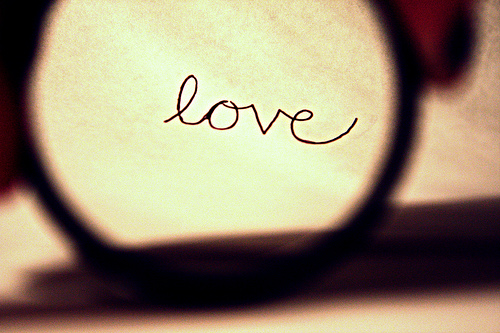Is it healthy to love unconditionally?
Compassion for yourself and unconditional love go hand in hand.
—
All spiritual teachers have pointed to unconditional love as the path to freedom; yet too often we mix up unconditional love with abusive love. Compassion for yourself and unconditional love go hand in hand.
In its healthiest sense, unconditional love means to love someone without trying to change them, while at the same time embracing them in our heart regardless of flaws, mistakes, or conditions. Think of your pet or your child. If they pee on the carpet or spill a glass of juice, you’re going to love them anyways. If they wake you up in the middle of the night howling or behave poorly in the car, you’re going to love them regardless.
Now think of your significant other. Love has its ups and its downs doesn’t it? You don’t bail when the going gets tough or even when your partner goes through a tough period of growth and acts less than appealing. You have patience and well…unconditional love in your heart.
But oftentimes, especially in families, phrases like family first, we’re family, or unconditional love are used as weapons. Weapons that keep us tied together regardless of abuse.
If you experienced an upside down childhood in which you had to parent your parent instead of merely being a child, it’s easy to mistake unconditional love for abuse. We’re taught from the beginning that family is family and you stick together no matter what. As a child you can’t leave your family for obvious reasons, so to survive in the mind of a child– you see yourself as wrong, try your hardest to change, justify bad behavior and interpret (in your little kid’s mind), abuse as love. Fast forward to adulthood and you’ve now equated love with the up and down drama of childhood.
Perhaps you have a parent in your life or a sibling that continues to abuse, yet guilty thoughts such as: But I love them, They love me, They’re just wounded, I need to have patience and unconditional love– keep flooding your head. These thoughts keep you bonded together in family because that’s what families do right? Wrong.
Here’s the truth: You can still love someone, without continuing to endure abuse.
If a parent or family member continues to emotionally abuse, bring drama, or hurt you in any way, you do not have to participate with this person as an adult. Unconditional love starts with having compassion for yourself first.
This means loving your inner child. YOU
You are not meant to sacrifice your life for your family. Abuse is abuse. I once believed enduring emotional and verbal abuse from family was my karmic lesson to love no matter what—until I realized that perhaps my “lesson” if you will, was to finally love myself first, and love myself enough to say “no more”.
So set aside guilt, and if you need to take a major time out away from an abusive family member, know in your heart that you’re being a healthy adult parenting your inner child.
Unconditional love and compassion are two different things. Compassion for all beings regardless of behavior is healthy.
Unconditional love for others in healthy relationships is indeed beautiful. Unconditional love regardless of abuse isn’t healthy. It’s self-abuse.
Practicing unconditional love for yourself in abusive or unhealthy relationships is not only necessary, it’s healing to everyone involved.
Once you step back from someone and love yourself first, you allow them the space to heal their own life. It’s like dropping one end of the rope during tug of war. When you remove yourself from the abuse, the abuser is left to reflect on their own life.
Loving someone does not mean enduring their abuse, carrying their pain and trying to make everything better for them. When we “selfishly” take care of ourselves, we become balanced, self-contained and able to truly help the world from a balanced and powerful place.
If you want to change the world by loving unconditionally and practicing compassion for others, remember that the compassionate seed must be planted inside first.
~Photo via photo credit: ashley rose, via photopin cc
[do action=”space”/][do action=”space”/]
Has my post helped you? Leave a tip here
| you choose |
![]()
